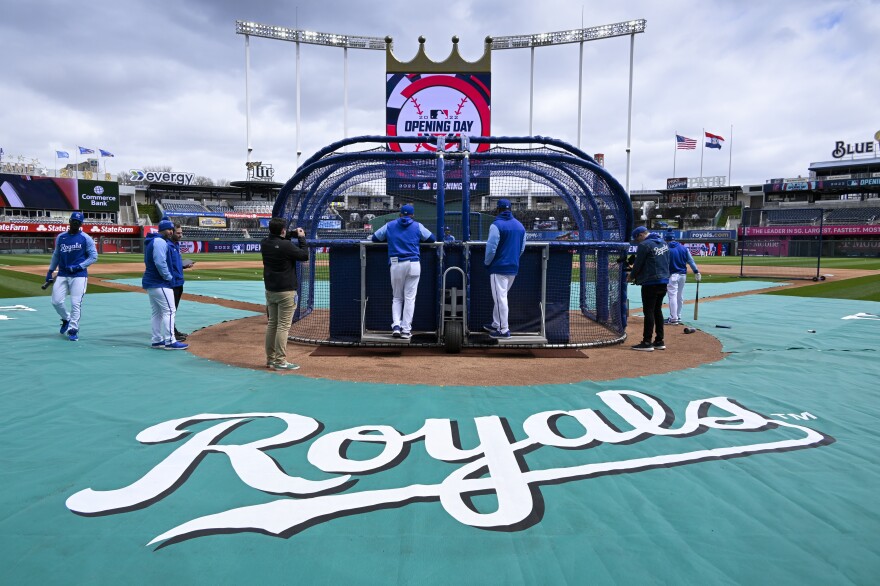Major League Baseball's opening day is finally here.
The league will hope to put an off-season of uncertainty behind it as baseball embarks on a somewhat compressed, yet full, 162-game schedule beginning Thursday. Here's everything you need to know.
Why the delay in opening day?
The MLB season was originally slated to start on March 31, but the league announced that it would be cancelling the start of the 2022 regular season due to a breakdown in negotiations as the league and players association pursued a new collective bargaining agreement (CBA).
MLB's owners originally locked out players on Dec. 2, 2021, severing contact between teams and their players until the lockout ultimately ended 99 days later. It was the first time MLB games were cancelled as a result of a work stoppage since the 1994-95 players strike.
As part of the new CBA those cancelled games will be squeezed into the regular stretch of games, saving a full 162-game season.
What changed with the new agreement?
One of the biggest changes as part of the new CBA is that pitchers will no longer have to take an at-bat in the National League. The American League has allowed designated hitters to take the pitchers' places in the rotation since 1973, but now the rule is universal for both leagues.
During the weird 2020 season MLB temporarily installed the universal designated hitter, but the National League reverted to its original rules in 2021. Now both leagues will feature a universal designated hitter for 2022.
Another big change this season will be an expanded group in the playoffs, going from 10 to 12 teams. The top two teams in each league will receive a first-round bye and a third wild-card team will be added in each league.
One rule that hasn't changed since it was implemented during the pandemic is the "ghost runner" rule, which places a runner on second base during extra innings to help shorten regular-season games. During the playoffs there will be no "ghost runner."

One of the biggest stories in baseball last year was Los Angeles Angels pitcher Shohei Ohtani, who many argue is helping to transform the game. Not only was he dominant as a pitcher but he excelled as a batter as well, hitting a total of 46 home runs last year. That's only two home runs behind league leaders Vladimir Guerrero Jr. and Salvador Perez.
In response, the MLB and MLB Players Association agreed to tweak the universal designated hitter, allowing teams that assign their pitcher as the designated hitter to continue to hit even if pulled from the mound. So even if a player like Ohtani is unable to finish the game as a pitcher, he can continue to take at-bats.
After some big deals, fans have new players to root for
Many teams will feature new faces this season, as a flurry of off-season moves have seen clubs splash big cash. One of those teams is the Texas Rangers, who spent more than $500 million on three players at the beginning of free agency, adding Corey Seager, Marcus Semien and Jon Gray to their roster.
The New York Mets also spent big money this offseason by signing 37-year-old Max Scherzer to a three-year $130 million deal. The team also brought in Mark Canha, Eduardo Escobar and Starling Marte.
World Series champions the Atlanta Braves look to repeat this season after trading for Oakland Athletics first baseman, and Atlanta native, Matt Olson. It forced the team to move on from fan-favorite Freddie Freeman, who eventually joined the Los Angeles Dodgers.
The Seattle Mariners will hope to end their 20-season playoff drought with the help of one of last season's best pitchers in Robbie Ray. They also brought in Cincinnati Reds All-Star Jesse Winker to help bolster their offense.
The Minnesota Twins also made a splash during the offseason by signing, arguably, the best free agent available, Carlos Correa, to the richest free-agent deal in franchise history.
Who can we expect to see on opening day?
One potentially spicy opening day matchup is between the defending American League champion Houston Astros, who face last year's phenom Shohei Ohtani and the Los Angeles Angels at 9:38 p.m. ET.
Another matchup to watch for is Albert Pujols' return to St. Louis, having signed a one-year contract bringing him back to the Cardinals. Before the lockout St. Louis was slated to open its season in Pittsburgh, but now they open at home at Busch Stadium against the Pittsburgh Pirates.
The World Series champions take on the Cincinnati Reds at home, where the Braves will have a chance to raise last year's title banner and hand out rings on MLB's opening night against a team that has offloaded many of its stars in an attempt to cut payroll.
The Mets take on the Nationals in D.C., while the Milwaukee Brewers will head to Wrigley Field to take on the Cubs.
The newly minted Cleveland Guardians will begin their season in Kansas City, where they will take on the Royals. And the San Diego Padres will head to Arizona to face the Diamondbacks to help round out an exciting opening day of baseball.
Copyright 2022 NPR. To see more, visit https://www.npr.org.

